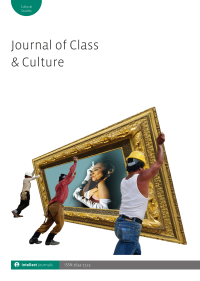-
f A working-class artist is something to be
- Source: Journal of Class & Culture, Volume 1, Issue 1, Apr 2022, p. 47 - 62
-
- 15 Jul 2021
- 28 Jul 2021
- 01 Apr 2022
Abstract
The creative and cultural sectors in the United Kingdom largely exclude the working classes. Even the small number of working-class people who do ‘make it’ into these sectors often find themselves and their work badly treated by those who hold the real power. This article explores some of the experiences of working-class artists navigating the cultural sector and how exclusion, prejudice and precarity impacted and continue to impact them. It takes as its focus the filmmaker Alan Clarke and the playwright Andrea Dunbar, who were at the height of their success in the 1980s. It also considers the writers Darren McGarvey and Nathalie Olah, whose work has achieved prominence in recent years. It is through this focus I hope to demonstrate the long continuum of challenges for working-class creatives. This article also considers how, on the occasions when they are allowed the space they deserve, working-class artists have created powerful shifts in cultural production. Finally, it details some of the changes needed for working-class people to be able to take their rightful place in contributing to cultural life and the societal risks involved if they are denied that place.



